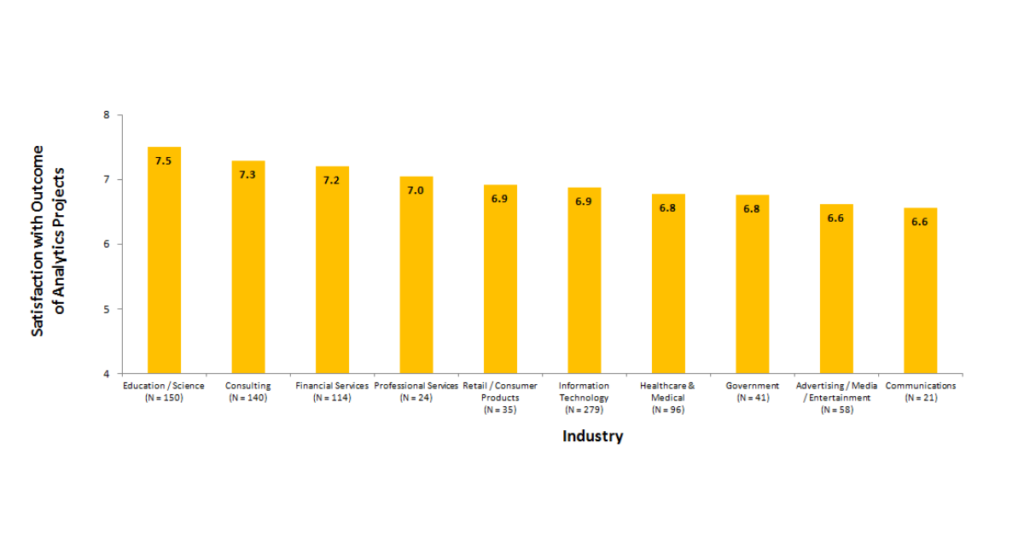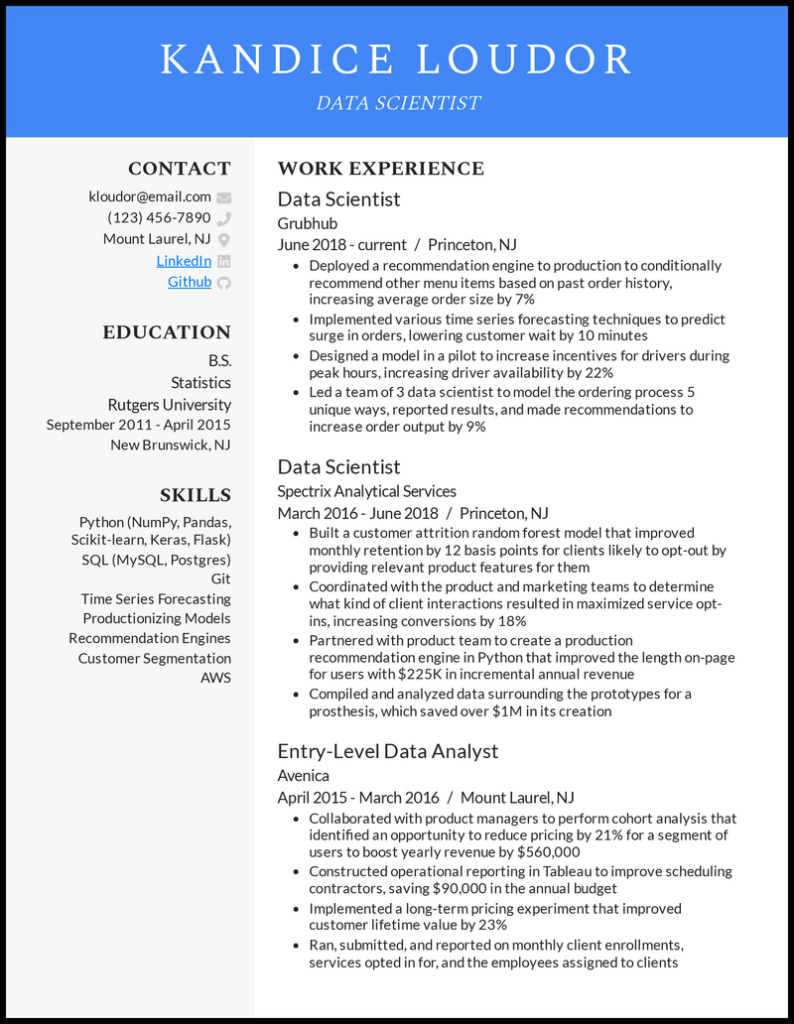Data science is a rapidly growing field that has become essential in many industries. With the increasing importance of big data, analytics, and machine learning in various sectors such as healthcare, finance, retail, and manufacturing, becoming a data scientist is a great career choice for many individuals. If you want to become a data scientist but not sure where to start, this article is for you.
Understanding the Data Science Landscape
To become a data scientist, it is crucial to understand what data science is and the roles and responsibilities of a data scientist. Data science is an interdisciplinary field that involves the use of statistical and computational techniques to extract insights and knowledge from data. It encompasses various subfields, including data analysis, data mining, machine learning, and artificial intelligence. Data scientists are responsible for collecting, processing, and analyzing large amounts of data to gain insights and inform decision-making.
What is Data Science?
Data science is a complex and multifaceted field that requires a combination of technical skills, domain knowledge, and creativity. The field involves working with large and complex data sets, and the ability to extract meaningful insights from them is crucial. If you aspire to become a data scientist, you have to know that data science involves various stages, including data collection, data preprocessing, data analysis, and data visualization.
Data science is a field that is constantly evolving, and data scientists need to be up-to-date with the latest tools and techniques. They need to have strong problem-solving skills, the ability to work independently and in teams, and excellent communication skills to present their findings to stakeholders.
Key Roles and Responsibilities of a Data Scientist
The key role of a data scientist is to collect, process, and analyze large amounts of data to gain insights and inform decision-making. Some of the typical responsibilities include data cleaning and preprocessing, exploratory data analysis, developing and testing models, and presenting insights to stakeholders. To become a data scientist, you need to be comfortable working with various tools and technologies, including programming languages like Python and R, statistical software like SAS and SPSS, and big data technologies like Hadoop and Spark.
Data scientists also need to have strong domain knowledge in the industry they are working in. For example, a data scientist working in healthcare needs to have a strong understanding of medical terminology and healthcare regulations. Similarly, a data scientist working in finance needs to have a strong understanding of financial markets and regulations.
Industries Utilizing Data Science

Data science is used in various industries such as healthcare, finance, manufacturing, and retail.
- In healthcare, data science is used for disease diagnosis, drug discovery, and personalized medicine.
- In finance, data science is used for fraud detection, risk management, and portfolio optimization.
- In manufacturing, data science is used for predictive maintenance and quality control.
- In retail, data science is used for customer segmentation, demand forecasting, and product recommendations.
Overall, data science is a field that has immense potential and is critical for businesses and organizations to make informed decisions. As the field continues to grow, it is the high time to become a data scientist.
Essential Skills to become a data scientist
Data science is a multidisciplinary field that involves the use of various tools and techniques to extract insights from data. If you aspire to become a data scientist, it is important to have a diverse set of skills that range from technical to soft skills.
Technical Skills
To become a data scientist, technical skills and proficiency in programming languages is a must. Some of the most commonly used programming languages in data science include Python, R, and SQL. These languages are used for data manipulation, analysis, and visualization. Data scientists must be proficient in these languages to work with large datasets and perform complex data analysis.
Data Manipulation and Analysis
Working with large datasets requires proficiency in data manipulation techniques, including filtering, sorting, merging, and aggregating data. Strong analytical skills are required to perform exploratory data analysis, which involves identifying patterns, trends, and relationships within the dataset. To become a data scientist you must be able to clean and preprocess data to prepare it for analysis.
Machine Learning and AI
Machine learning and artificial intelligence are rapidly growing fields, and data scientists must have a solid understanding of these concepts. A strong foundation in machine learning algorithms and their applications is required for developing predictive models and performing data-driven decision-making. If you aspire to become a data scientist you must also be familiar with deep learning, natural language processing, and computer vision.
Soft Skills
Soft skills are equally important to become a data scientist, as data scientists need to communicate complex technical concepts to both technical and non-technical stakeholders. Excellent communication and presentation skills are therefore essential.
Communication and Presentation
Data scientists need to be able to explain technical concepts in a clear and concise manner. They must be able to communicate complex data analysis results to both technical and non-technical stakeholders. Data visualization is an important tool for data scientists to present their findings in a compelling and understandable way.
Problem Solving and Critical Thinking
To become a data scientist, you require strong problem-solving and critical thinking skills to identify and define problems, analyze data, and propose effective solutions. Data scientists must be able to think creatively and outside the box to develop innovative solutions to complex problems.
Collaboration and Teamwork
Collaboration is important in data science projects, and to become a data scientist you must be able to work well in teams and collaborate effectively with other professionals. Data scientists must be able to communicate their ideas and work together to develop solutions to complex problems.
Educational Pathways to Data Science
If you want to become a data scientist, there are several educational pathways that you can take.
Formal Education
Formal education is the traditional pathway to become a data scientist. A degree in statistics, computer science, engineering, mathematics, or a related field is a good starting point. These degrees provide a strong foundation in mathematics, programming, and data analysis. Coursework in data structures, algorithms, probability, and machine learning is also beneficial.
Undergraduate Degrees
Undergraduate degrees in data science-related fields are usually four-year programs that offer a broad overview of the field. Students learn the fundamental concepts of data science, including statistical analysis, data visualization, and machine learning. They also gain practical experience through projects and internships.
Master’s and Doctoral Programs
Master’s and doctoral programs in data science, statistics, and computer science are more specialized and offer in-depth coursework in machine learning, data mining, algorithm design, and statistics. These programs usually take two to five years to complete and require a significant amount of research. Graduates of these programs are well-equipped to tackle complex data science problems and often go on to work in research or academia.
Online Courses and Bootcamps
Online courses and bootcamps offer a more flexible and affordable alternative to traditional education. These programs are designed to teach the essential skills required to become a data scientist. They are usually shorter than formal education programs and can be completed at your own pace.
Vertocity is the best and trusted platform that offers courses in data science with cloud and big data that aim to teach the essential skills required to become a data scientist. They are taught by industry experts and comes with 100% job placement guarantee. Vertocity Data Science Program offers hands-on experience and mentorship.
Whether you choose formal education or online courses, there are many pathways to become a data scientist. With the right skills and knowledge, you can become a successful data scientist and make a significant impact in your field.
Building a Strong Data Science Portfolio
Building a strong data science portfolio is a very critical and important step to become a data scientist, because portfolio showcases your skills and knowledge to potential employers. However, it is not just about having a portfolio, but having one that stands out from the rest.
Importance of a Portfolio
A portfolio is a collection of projects that demonstrate your skills, knowledge, and experience in data science. It is a tangible representation of your abilities and can help potential employers understand the scope of your work. Having a portfolio not only showcases your work but also makes you stand out from other job applicants. It is a way to differentiate yourself from others and highlight your unique skills and experiences.
Types of Projects to Include
When building your portfolio, it is important to include a variety of projects that demonstrate your strengths and skills. Some projects to consider including are data cleaning and preprocessing, exploratory data analysis, data visualization, machine learning projects, and capstone projects. Choose projects that reflect real-world problems and datasets. This will help potential employers understand your ability to solve real-world problems and provide insights that can be used to make informed decisions.
Showcasing Your Skills and Accomplishments
When creating your portfolio, make sure to showcase your best work and highlight your skills and accomplishments. It is important to have a visually engaging portfolio with clear explanations of the problems you solved and the insights you gained. This will help potential employers understand the value you can bring to their organization. Additionally, make sure to include any relevant certifications or awards you have received. This will help validate your skills and provide additional credibility to your portfolio and help you become a data scientist.
Networking and Community Involvement
Networking and community involvement are essential to become a data scientist looking to advance their careers and stay ahead of the curve. Here are some ways to get involved:
Attending Conferences and Meetups
Attending conferences and meetups is a fantastic way to connect with other data professionals and learn about the latest trends and best practices in the field. These events provide opportunities to network, attend workshops and talks, and explore new tools and technologies. Some of the most popular data science conferences include:
- Strata Data Conference: This conference is one of the largest data science events in the world, featuring talks and workshops from leading experts in the field.
- Data Science Conference: This conference focuses on practical applications of data science, with talks and workshops covering topics like machine learning, big data, and data visualization.
- Data Science Salon: This conference is more intimate than some of the larger events, providing opportunities for attendees to connect with speakers and other professionals in the field.
Engaging in Online Communities
Participating in online communities is an excellent way to connect with other data scientists, learn about best practices, and share your own knowledge and experience. There are many online communities dedicated to data science, including:
- Reddit: The r/datascience subreddit is a popular forum for data science discussions, with threads covering everything from technical questions to career advice.
- GitHub: GitHub is a platform for sharing and collaborating on code, and there are many data science projects and repositories available to explore.
- Kaggle: Kaggle is a platform for data science competitions, where users can compete to solve real-world problems and showcase their skills.
Collaborating on Open Source Projects
Contributing to open-source data science projects is an excellent way to build your skills, gain experience, and showcase your work to the community. There are many open-source projects available to work on, including:
- NumPy: NumPy is a library for working with arrays in Python, and is widely used in data science and scientific computing.
- Pandas: Pandas is a library for data manipulation and analysis in Python, and is commonly used in data science workflows.
- Matplotlib: Matplotlib is a library for creating visualizations in Python, and is often used for data exploration and analysis.
- Scikit-Learn: Scikit-Learn is a library for machine learning in Python, and provides tools for tasks like classification, regression, and clustering.
By contributing to these projects, you can gain valuable experience working with real-world data and code, and build your reputation in the data science community and become a data scientist.
Job Hunting and Interview Preparation
Cracking a data science interview can be intimidating, but with the proper preparation and approach, you can improve your chances of getting your dream job in data science. In this section, we will share some helpful tips and tricks to assist you in your job hunting journey.
Crafting a Data Science Resume

Your resume is your first chance to make a good impression on potential employers. It should be well-crafted, concise, and highlight your skills, accomplishments, and experience in data science. To make your resume stand out, consider tailoring it to the specific job you are applying for. This means highlighting the skills and experiences that are most relevant to the job description.
When crafting your resume, make sure to include the following sections:
- Contact information
- Objective or summary statement
- Education
- Work experience
- Skills
- Awards and achievements
Keep in mind that your resume should be easy to read and visually appealing. Use bullet points and clear headings to organize your information, and consider using a professional template to give your resume a polished look.
Preparing for Technical Interviews
Technical interviews are a crucial part of the job application process for data science roles. These interviews test your knowledge of machine learning algorithms, data structures, programming languages, and statistics. To prepare for technical interviews, consider the following tips:
- Practice commonly asked questions
- Solve coding challenges
- Brush up on your technical skills
- Review your past projects and experiences
- Be prepared to explain your thought process and problem-solving approach
By practicing these skills, you can increase your confidence and perform well in technical interviews and become a data scientist.
Negotiating Job Offers and Salaries
When negotiating job offers and salaries, it’s important to do your research and be prepared to articulate your value. Research the industry standards for data science roles and salaries in your area, and consider factors such as your experience, skills, and accomplishments when negotiating.
When negotiating, keep the following tips in mind:
- Be confident and assertive
- Focus on your value and accomplishments
- Be willing to compromise
- Consider non-salary benefits such as flexible working hours or additional vacation time
By following these tips, you can negotiate a job offer and salary that reflects your worth and sets you up for success in your data science career.
Becoming a data scientist involves learning diverse technical and soft skills, building a strong portfolio, and networking with other professionals in the field. By following these steps, you can prepare yourself for a career in data science and create opportunities for yourself in this dynamic field.



